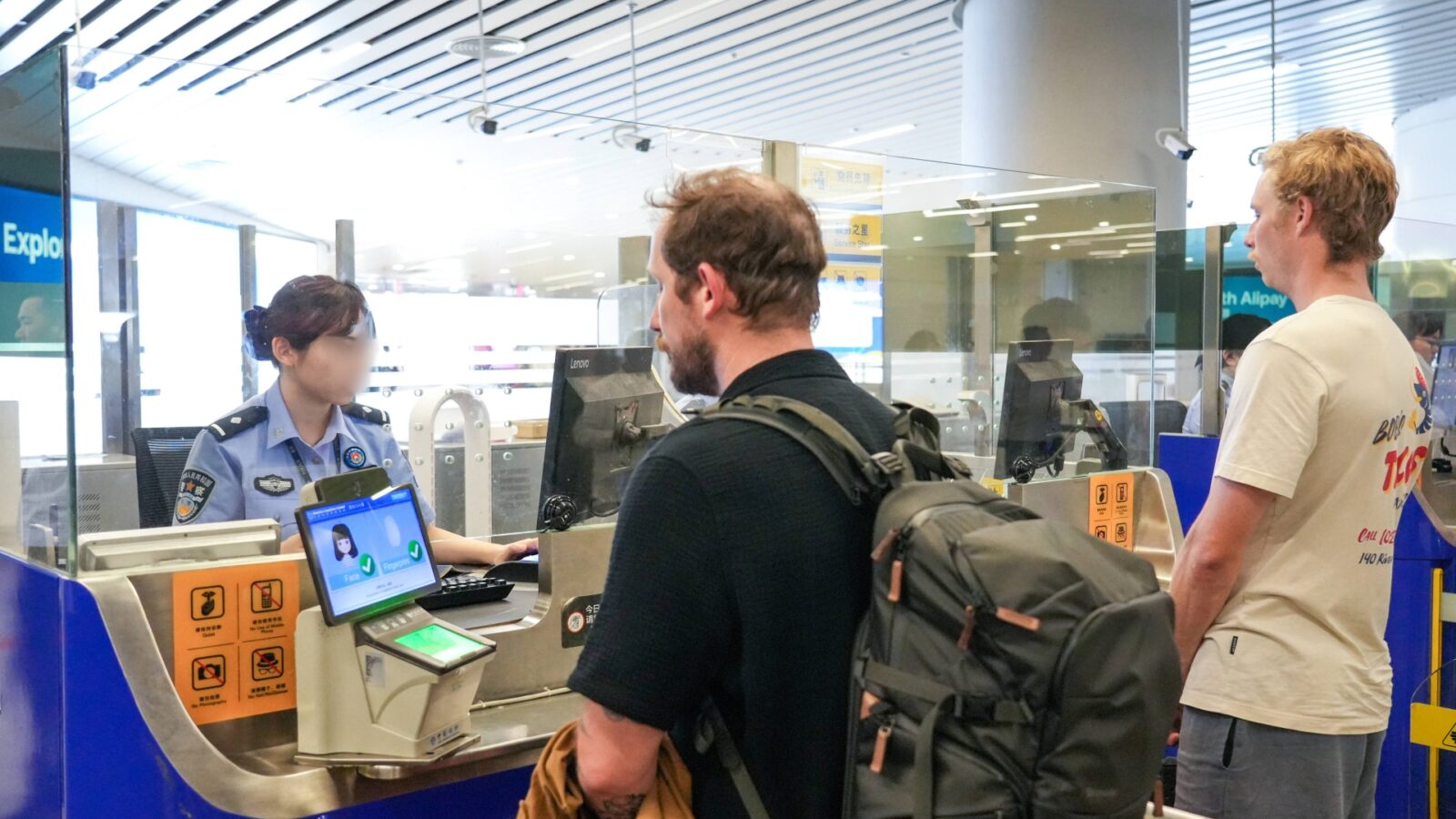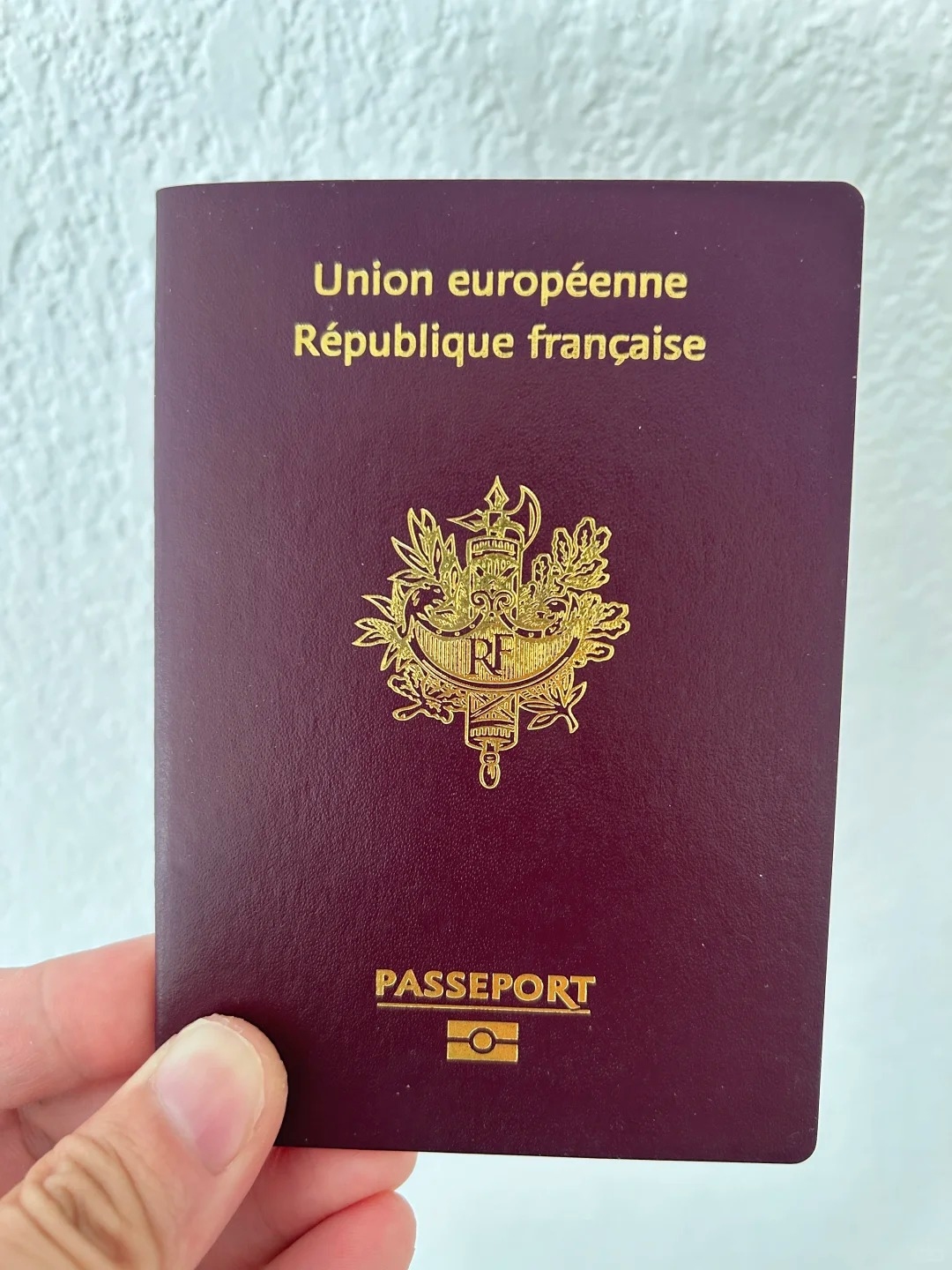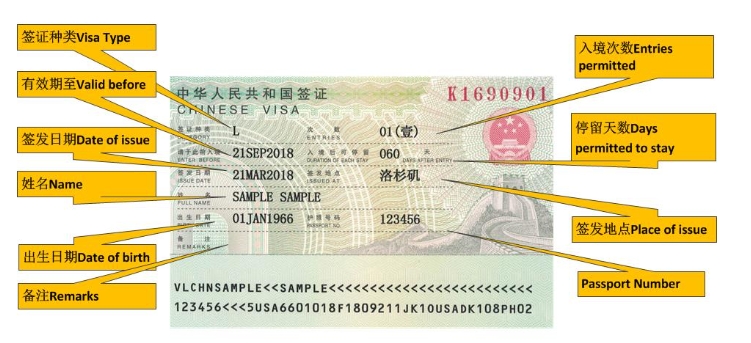
Entry at the Airport
Here’s the latest if travel to China is on your list for 2025: the National Immigration Administration has rolled out a big update this November. China Visa-free entry for 45 countries has now been extended until Dec. 31, 2026, so you can pop into China without the hassle of pre-departure paperwork. This is all part of Beijing’s ongoing attempt to ease the roadblocks to inbound travel, improve tourism in general, and entice more international visitors to spend their time ( and money) in places such as Shanghai, Chengdu, and Beijing.
What is exciting about this? The updated china visa free countries policy doesn’t just streamline arrivals; it also permits a considerably more spontaneous mode of travel. Think, quick stopovers turned into week-long odysseys, business trips that finish with a hotpot dinner in Chongqing, or weekend get-aways, sans visa worries. Let’s analyze who is eligible, for how long you can stay, and what this portends for your next China trip, under the new china visa-free countries regulations.
📢 Major Development on Policy: China has released the list of 45 nations who enjoy a 30 day access to Mainland China.
Beijing - Nov 2025 - China’s National Immigration Administration has confirmed the extension of its unilateral visa-free policy until December 31, 2026, allowing nationals of 45 countries to enter mainland China without applying for a visa. China has announced its visa-free policy for France and several other Europeancountries has been similarly extended until December 31, 2026. Also from November 10, 2025, Sweden also will enjoy the benefit of visa-free access throughout this period.
At the same press conference, Mao Ning, spokesperson of the Ministry of Foreign Affairs, stated that China would be resuming travel-agency operations for the organization of tours of Canadian citizens for group-tours of Canadian citizens in that country. These steps are typical of China’s wider object which is to obtain high-quality opening-up and the facilitation of cross-border travel by and to tourists both in and out of the country.
All related information has been verified and cross-checked with Visa for China and MFA Consular Affairs as official sources.
If you’re planning a trip to China it will now be very much easier. For by this policy persons from countries granted the benefit may come to the mainland of China for 30 days, without applying for a visa. Whether it is for business, or picturesque tours, or to gratify visits to friends and relatives, all that is necessary now is to have the passport and a ticket home for an appointed date. In short, it has now become easier and smoother than ever for travellers to go freely round China.
Important Note: This 30-day visa-free policy is completely separate from China's 240-hour (10-day) transit visa-free policy, which has different eligibility criteria and geographic restrictions. The 30-day visa-free policy provides nationwide access without prior application—requiring only a valid passport and proof of onward travel.
✈️ Policy Core Details
| Item | Details |
|---|---|
| Duration of Stay | 30 complete days from entry date (not calendar months) |
| Eligible Countries | 45 countries (Europe, Asia, Oceania, South America) |
| Ports of Entry | All ports (airports, land borders, seaports) |
| Validity Period | Extended to December 31, 2026 (announced November 2025) |
| Cost | Zero cost, no application, no visa approval wait |
| Geographic Coverage | All of mainland China (excluding Hong Kong, Macau, Taiwan) |
🌍 Complete List of Visa-Free Countries
European Region (33 Countries)
The policy covers most major European tourism source countries, with tourists from France and Germany accounting for 40% of total European visitors to China. Growth has been particularly significant from Spain, Poland, and Portugal since the policy expansion.
| Region | Countries |
|---|---|
| Nordic / Baltic | Denmark, Estonia, Finland, Iceland, Latvia, Lithuania, Norway, Sweden |
| Western Europe | Austria, Belgium, France, Germany, Ireland, Luxembourg, Netherlands, Switzerland |
| Southern Europe | Cyprus, Croatia, Greece, Italy, Malta, Portugal, Spain, Slovenia |
| Central-Eastern Europe | Bulgaria, Czech Republic, Hungary, Poland, Romania, Slovakia |
| Balkans | Bosnia and Herzegovina, Montenegro, North Macedonia, Serbia |
Asia-Pacific Region (7 Countries)
| Region | Country |
|---|---|
| East Asia | 🇰🇷 South Korea |
| 🇯🇵 Japan | |
| Southeast Asia | 🇸🇬 Singapore |
| 🇲🇾 Malaysia | |
| 🇹🇭 Thailand | |
| 🇧🇳 Brunei | |
| Middle East | 🇦🇪 United Arab Emirates |
Oceania (2 Countries)
Travelers from Australia and New Zealand typically extend Hong Kong or Southeast Asia trips to mainland China. The 30-day stay period makes in-depth exploration possible.
South America (5 Countries)
| Country | Benefits of Traveling to China |
|---|---|
| 🇦🇷 Argentina | 30-day stay makes long flights worth it. |
| 🇧🇷 Brazil | Perfect for multi-city cultural trips. |
| 🇨🇱 Chile | Great for business and culture exchange. |
| 🇪🇨 Ecuador | Affordable modern travel experience. |
| 🇸🇷 Suriname | Strengthens cultural and family ties. |
📋 Key Eligibility Requirements

Regular French Passport
⚠️ Ordinary Passports Only
This policy ONLY applies to ordinary passports (regular tourist/civilian passports issued to ordinary citizens).
The following passport types DO NOT qualify for visa-free entry:
- Diplomatic passports
- Official/Service passports
- Government official passports
- Emergency travel documents
- Temporary passports
Travelers holding non-ordinary passports, regardless of nationality, must apply for visas through standard channels at Chinese embassies/consulates or visa application centers. Unsure how your passport type affects your visa? Click Chinese Visa Types 2025 and get the complete picture.
🛂 Required Entry Documents Checklist
1. Valid Passport (6+ Months Validity)
Passport validity must exceed your planned departure date by at least 6 months. If your passport expires within 6 months, renew it before travel.
Example: Planning to leave China on March 15, 2026, passport must be valid until at least September 15, 2026.
2. Confirmed Onward Travel
Must present confirmed return or onward tickets proving you will leave China within 30 days. Acceptable proof includes:
- Flight ticket returning to home country
- Flight ticket to third country
- Train ticket to Hong Kong/Macau
- Cruise departure documentation
Important: Airlines check this before boarding. Screenshots are insufficient—need booking confirmation showing passenger name and dates.
3. Accommodation Proof
Provide evidence of accommodation arrangements:
- Hotel Booking: Confirmation for at least first few nights
- Invitation Letter: If staying with family/friends, need signed invitation including host contact information and address
Hotels typically require this at check-in and may report to local public security per registration requirements.
4. Sufficient Funds
Be prepared to prove financial ability to support yourself during stay:
- Bank statements (recent, showing available balance)
- Credit cards (Visa/Mastercard and other international cards)
- Cash (USD, EUR, or RMB)
While not always checked, immigration officers can request proof. Suggested amount: minimum $100 USD equivalent per day.
5. Travel Insurance (Strongly Recommended)
Not legally mandatory but highly recommended. Medical treatment at international clinics in Chinese cities can be quite expensive—fractures or emergency visits can easily cost ¥10,000-30,000 ($1,400-4,200).
6. Entry Card Completion
Distributed on entry flights or available at immigration. Must complete with passport information, entry purpose (tourism/business/visiting), accommodation address, and duration of stay.
✅ Permitted Activities
During your visa-free stay, you may engage in the following activities throughout mainland China (all provinces, autonomous regions, municipalities) with no geographic restrictions:
Tourism: Visit tourist attractions, experience local culture, explore cities and natural landscapes. Free access to Beijing, Shanghai, Guangdong, Sichuan, and any other province or city.
Business Activities: Attend business meetings, exhibitions, trade negotiations, conduct market research, meet with partners or clients, sign contracts. However, you may NOT be employed by Chinese entities or receive compensation from Chinese sources.
Visiting Relatives and Friends: Reunite with relatives or friends residing in China, attend weddings, family gatherings, or social events.
Transit: Pass through China en route to third countries. The 30-day policy offers more flexibility than the 240-hour transit visa for longer stays.
🚫 Prohibited Activities
The following activities require applying for appropriate visa types:
| Activity Type | Required Visa | Notes |
|---|---|---|
| Employment | Z Work Visa | Working for Chinese companies or receiving income from Chinese sources |
| Study | X1/X2 Study Visa | Participating in academic courses, even short-term programs |
| Journalism | J1/J2 Journalist Visa | Media reporting and news gathering activities |
| Religious Activities | Special Permit | Organized religious activities or missionary work |
| Permanent Residence | Relevant Permit | Any activities suggesting long-term residence or settlement |
⏰ Understanding Your 30-Day Stay Period
How Time is Calculated
Your 30 days begin the moment you receive your entry stamp and end at midnight on the 30th day.
Example:
- Entry stamp: January 10, 2026 at 2:00 PM
- Must depart: February 8, 2026 by 11:59 PM
This gives you complete 30 days regardless of entry time. Unlike some countries that count "arrival day = Day 1," China calculates consecutive complete days.
Extension Possibilities
Short Answer: Very difficult, rarely approved.
You can apply for extension at local Exit-Entry Administration Bureau (under Public Security Bureau). However, approval requires compelling reasons:
Reasons That May Be Approved:
- Serious illness or injury requiring continued medical treatment
- Natural disasters preventing safe departure
- Transportation disruptions beyond your control (rare cases like airport closures)
- Force majeure circumstances
Will NOT Be Approved:
- "I'm having a great time and want to stay longer"
- "I haven't finished sightseeing"
- "Flights next week are too expensive"
Application Process: Requires documentation (medical certificates, disruption proof), takes several days, processing fee ¥160, and approval is not guaranteed.
Better Strategy: Plan itinerary within 30 days, or exit to Hong Kong/Macau for a few days, then re-enter for new 30-day period.
Multiple Entries
You can use the visa-free policy multiple times per year. However, immigration may question travelers repeatedly entering for 30-day cycles with brief exits and re-entries. This pattern may suggest business activities requiring proper work authorization.
Acceptable Pattern: Visit for 2 weeks in April, leave, visit again in October.
Suspicious Pattern: Enter 30 days, exit to Hong Kong 3 days, re-enter 30 days, repeat monthly.
🏨 Mandatory Registration: Do Not Ignore
24-Hour Rule
All foreign visitors must register their residence within 24 hours of arrival. This applies to everyone, including visa-free travelers.
Hotels Handle Automatically: When checking into any licensed hotel, guesthouse, or hostel, the front desk will automatically photocopy your passport, record entry stamp details, submit registration to local public security system, and provide you with registration form (keep it—sometimes needed when buying train tickets). You simply need to provide passport at check-in.
Staying with Friends or Airbnb? If staying in private accommodation, you and your host must go together to the local police station (派出所) to register within 24 hours. Bring:
- Your passport
- Entry stamp page (visible)
- Host's ID card (Chinese citizens) or passport (foreign residents)
- Rental agreement or property ownership proof
- Completed registration form (provided by police station)
Penalties for Non-Registration: Fines of ¥500-2,000 (approximately $70-280) per violation. You typically discover this when trying to leave China—immigration sees registration gaps and issues fines before allowing departure.
More serious cases may involve temporary detention for questioning, warnings on immigration record, difficulty obtaining future Chinese visas.
Real Case: A British traveler used unregistered Airbnb accommodation in three cities and was fined ¥1,500 at Shanghai Pudong Airport upon departure.
🔄 240-Hour Transit Visa: Another Option
Great news for international travelers! On December 17, 2024, China's National Immigration Administration announced a major update: the old 72-hour and 144-hour policies have been unified and extended into one generous 240-hour visa-free transit program—a full 10 days. Then on June 12, 2025, the policy expanded further when Indonesia joined the list of eligible nations, raising the total to 55 countries across Europe, Asia, the Americas, and Oceania. Need more info on the latest visa-free rules? Check China Transit Visa: From 144 Hours to 240 Hours (2025 Update) for a full breakdown.
Eligible Countries for 240-Hour Visa-Free Transit (as of June 2025)
| Continent | Countries |
|---|---|
| Europe | Austria, Belgium, Czechia, Denmark, Estonia, Finland, France, Germany, Greece, Hungary, Iceland, Italy, Latvia, Lithuania, Luxembourg, Malta, Netherlands, Poland, Portugal, Slovakia, Slovenia, Spain, Sweden, Switzerland, Norway |
| Asia | Japan, South Korea, Singapore, Malaysia, Brunei, United Arab Emirates, Qatar, Israel, Indonesia (added in 2025) |
| Americas | United States, Canada, Brazil, Mexico, Argentina, Chile |
| Oceania | Australia, New Zealand |
| Other Europe (non-Schengen) | United Kingdom, Ireland, Croatia, Serbia, Ukraine |
| Total | 55 countries |
Comparing the Two Policies
| Item | 30-Day Visa-Free | 240-Hour Transit Visa-Free |
|---|---|---|
| Eligible Countries | 45 countries | 55 countries (includes US, Canada, UK, Russia) |
| Duration of Stay | 30 days | 240 hours (10 days) |
| Geographic Scope | Nationwide | Limited to specific regions |
| Transit Requirement | None | Must be en route to third country (not country of origin) |
| Route Pattern | Any | Must be A→B→C (A≠C) |
Expansion of Ports and Regional Coverage
Cities by Region (Eligible for 240-Hour Transit Visa)
| Region | Cities |
|---|---|
| North | Beijing, Tianjin, Shijiazhuang, Shenyang, Dalian, Changchun, Harbin, Manzhouli, Heihe, Suifenhe, Xi'an, Lanzhou, Urumqi, Alashankou, Khorgos |
| South | Shanghai, Nanjing, Hangzhou, Hefei, Fuzhou, Xiamen, Jinan, Qingdao, Zhengzhou, Wuhan, Changsha, Guangzhou, Shenzhen, Zhuhai, Shantou, Zhanjiang, Nanning, Guilin, Beihai, Haikou, Sanya, Chongqing, Chengdu, Leshan, Kunming, Xishuangbanna, Dehong Mangshi, Ruili |
The 240-hour policy significantly expands coverage to major cities across China, including important tourist destinations and business hubs in both northern and southern regions.
How to Choose?
Choose 240-Hour Transit Visa-Free if:
- Your nationality is on the 55-country 240-hour list but not on the 45-country 30-day list (such as US, Canada, UK, Russia)
- You are genuinely in transit and only need 5-10 days
- You're staying in one of the designated regions and won't travel elsewhere
- You have confirmed onward travel to a third country
Choose 30-Day Visa-Free if:
- Your nationality qualifies for both policies
- You need nationwide travel flexibility
- You need more than 10 days
- You're returning to your country of origin (not traveling to third country)
Example Scenario: A Canadian traveling Toronto→Beijing→Toronto for 5 days must use a regular visa (doesn't qualify for 30-day, and 240-hour requires third country). But Toronto→Beijing→Seoul means Beijing stay can use 240-hour transit visa.
⚡ China’s new visa-free transit policy is here — check China Visa-Free Ports 2025 and see what’s changed.
📞 Official Resources & Emergency Contacts
Official Chinese Government Websites:
- National Immigration Administration: www.nia.gov.cn
- Ministry of Foreign Affairs: www.fmprc.gov.cn
- China Visa Application Service Center: www.visaforchina.cn
Travel Booking:
- High-speed rail: www.12306.cn (official) or www.trip.com (more English-friendly interface)
- Hotels: Trip.com, Booking.com, Ctrip
Emergency Contact Numbers:
- Police: 110
- Medical Emergency: 120
- Fire: 119
- Your Embassy (save number before travel)
💡 Frequently Asked Questions about China Extends Visa-Free Policy Through 2026
Q: Is 30 days enough to see China?
Yes, it’s usually enough time to see the main highlights of China, but it all depends on how you travel. China is large and is like going to several countries in Europe, so hurry up and you’ll be burned out. Pick a region, for example, all of the cities on the East Coast starting with Shanghai, Hangzhou, and Suzhou, or head west for cultural visits such as Chengdu, Chongqing and Xi’an. This way you get substance instead of just a collection of cities.
Q: Do I need a visa just to visit Hong Kong?
Usually no, most travelers do not need a visa to visit Hong Kong as it has its own immigration system. Citizens of over 170 nations can stay without a visa from 90 to 180 days. However, if the idea is to cross over into China, the story is different and one will have to follow the china visa free nations or general visa provisions. So always check to see if your nationality is included before hopping over borders.
Q: Can I enter multiple times?
Yes, it is legally possible to enter China several times during the currency of the given visa, but don’t do it too frequently as some questions may be asked about this. Immigration may get ideas when they see the stamp for repeated arrivals on the 30 day stay and suspect you are working on residing without the proper permits. To stay safe, allow a space of time between entries and also make sure that you can show obvious proof of the trip made, such as hotel confirmations, flights obtained or any referees to visits made, to show that the purpose of visit was genuine.
Q: What happens if I inadvertently overstay the visa given?
Expect penalties if you do overstay your stay in China. You can be fined at least ¥500 per day and also may find detention in order or a prohibition on re-entry. If the overstay has been forced by circumstances, such as, for instance, a flight cancellation or illness then it is of prime importance to report your case to the Exit-Entry Administration as soon as possible, taking with you all evidence of the facts, such as medical certificates or letters from airlines, etc., at the earliest opportunity. Be quick to act as this shows that the applicant can take responsibility and thus with proof, possible opposition and punishment will be lessened.
Q: Can I do a “visa reset” trip to Hong Kong and come back?
Yes indeed, from one side of the border to the other to make a fresh stay from mainland China possibly also. But be careful if you are doing it too often, immigration officers will suspect that you are using this loophole to stay in China permanently. Space out the visits or if extended travel or work projects are envisaged, an alien visa should be sought instead.
Q: Is travel insurance really necessary ?
Yes, quite right it is. And in the circumstances this then is quite worth while, (though maybe not available by law), but the medical treatment in China does not come cheap, as we see by having to stay in hospital and that can cost up to ¥30,000 or above, and based on repatriation the fees can be hefty. However, a reasonable travel insurance can be had at a price ranging from $30-80 per person, covering accidents, cancellations and emergencies etc. It is, therefore, better to think of as peace of mind for travel issues.
Q: Do I need any RMB cash before arriving ?
Not in so many words. But cash money is very useful. You can simply take on arrival some RMB from ATM machines; a simple way is to go to the KRG ATMs, etc., (after getting money first of course), for the RMB, but it would be much better to have pre-prepared about ¥200-500 in cash for taxi fares or for street food until mobile payment systems have been arranged within the ideal situation. Once this is established for Alipay or WeChat, little cash will be needed from then on to the next time.


